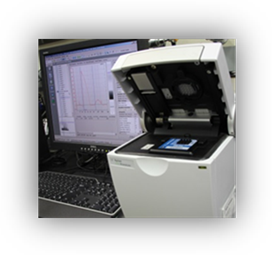Primary Venous Thrombosis due to Factor V Leiden Mutation

Venous thrombosis afflicts approximately 1 in 1,000 people each year, primarily thrombophlebitis of the legs and pulmonary embolism. The disease is familial in about half the cases, and it has recently been discovered that 50% of patients with a family history and 21% of unselected patients with thrombosis exhibit a very weak plasma response to activated protein C (APC resistance). In 90% of people, the phenotype is associated with a single point mutation (R506Q) in the gene encoding coagulation factor V, resulting in a protein that cannot be properly inactivated by APC. The mutant factor V-Leiden retains its procoagulant activity, leading to increased thrombotic risk. The frequency of the mutation varies between 3% (Holland) and 6% (U.S. physician study). Having the R506Q mutation occurs with an incidence at least 10 fold higher than that of all other known genetic risk factors for thrombosis together (protein C, antithrombin III, and protein S deficiencies).
INDICATIONS FOR TESTING:
- prophylatic anticoagulation in situations where venous status is likely e.g. prolonged bed rest after surgery
- patient or family history of venous thrombosis or pulmonary embolism
- screen prior to surgery
- screen prior to prescribing oral contraceptives
- screen in first pregnancy with or without a positive family history
- pregnant women subject to preeclampsia
- patient request
SAMPLE REQUIREMENTS: |
| Blood: 3-5 ml purple top (EDTA) vacutainer of whole blood inverted several times to mix. Forward within 48 hours at room temperature. Please consult the lab for tissue or body fluid submission. |
| Amniotic Fluid: 10-15 ml amniotic fluid from 14th-17th week of gestation or one confluent T25 flask of cultured cells. Send specimen refrigerated, but not frozen (do not ship on dry ice). Please use an overnight courier service. |
| Test Method: RFLP |
| Turn around time: 5-7 days |
| Report: A PCR based assay is used to detect the G506Q mutation in the Factor V gene. Report will include assay results, as well as background information. |
COUNSELING ISSUES:
- Heterozygous individuals face a seven fold increased risk of venous thrombosis with the risk increasing to eighty fold in homozygotes.
- 25% of men age 60 with primary venous thrombosis and hence high risk of pulmonary embolism were found to carry the mutation G506Q.
- 9% of pregnant women with severe preeclampsia were found to carry this mutation while matched normotensive controls had a 4% carrier frequency.
- The presence of the mutation is not associated with an increased risk of myocardial infarction or stroke.

 Institute of Genomic Medicine
Institute of Genomic Medicine